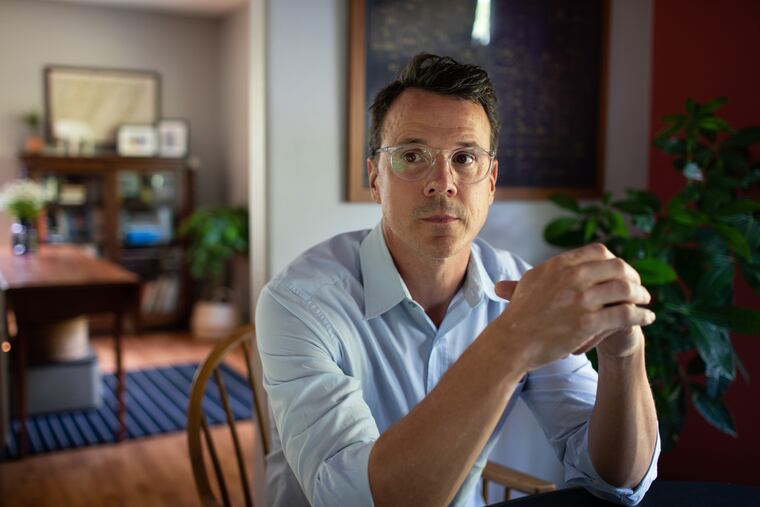That $109K heart attack is down to $332. But what about other surprise bills?
A Texas hospital that charged a teacher $108,951 for care after a heart attack slashed the bill to $332.29 just before Labor Day
— but not before the huge charge sparked a national conversation over what should be done to combat surprise medical bills that afflict a growing number of Americans.

A Texas hospital that charged a teacher $108,951 for care after a heart attack slashed the bill to $332.29 just before Labor Day — but not before the huge charge sparked a national conversation over what should be done to combat surprise medical bills that afflict a growing number of Americans.
The story of Drew Calver was first reported by Kaiser Health News and NPR that week. The 44-year-old father of two had suffered a heart attack in April 2017 and a neighbor rushed him to the nearest emergency room, which was an out-of-network hospital under his school district health plan. His insurance paid the hospital nearly $56,000 for his four-day hospitalization and procedures to clear his blocked "widow-maker" artery.
But the hospital, St. David's Medical Center in Austin, wasn't satisfied with that amount and went after the high school history teacher and swim coach for an additional $109,000 in a practice known as "balance billing."
Within hours of the story publishing, the hospital offered to waive nearly the entire bill and charge him $782.29 instead. Days later, St. David's lowered the amount even further. Calver said he paid it off over the phone, eager to put this stressful saga behind him.
"It feels great that this is over for me and my family. But this isn't just about my bill," Calver said in an interview. "I don't feel any consumer should have to go through this."
Just after paying off his hospital bill, Calver walked to the school cafeteria Thursday to grab lunch. One of the cafeteria workers approached him and shared that she, too, was facing a huge medical bill from the same Austin hospital. Calver said he plans to follow up with the woman and assist in any way he can.
"This is the next way I can be of help to others," he said.
The hospital system, St. David's HealthCare, continues to defend its handling of Calver's bill, saying it "did everything right in this particular situation." It also pointed out that it informed the family on several occasions that they could apply for a discount through a financial assistance program, based on their household income.
Calver said he didn't fill out the financial assistance paperwork earlier because he didn't believe that he owed the $108,951 — and had been contesting the validity of the charges all along.
His health plan said the $55,840 it paid the hospital should have satisfied the hospital's claim. And Calver was already paying $1,400 as coinsurance, which was the out-of-pocket amount calculated by his health plan.
HCA Healthcare, the largest for-profit hospital chain in the country, and two nonprofit foundations own St. David's.
The chief executive of St. David's HealthCare, C. David Huffstutler, wrote a memo addressed to his board of governors about Calver's story. A St. David's employee shared the memo with Kaiser Health News, and the hospital didn't dispute its accuracy.
"I realize this is not the type of coverage any of us want for St. David's HealthCare," Huffstutler wrote in his Aug. 27 memo. "With this story, we had a number of circumstances that made it difficult to neutralize the coverage — a monthly news segment that seeks to empower patients to challenge their medical bills; a gap in the system that is affecting patients … and, a compelling patient story."
Huffstutler also wrote that the hospital's charges of $165,000 were "reasonable and customary." He said that the school district and its health plan administrator, Aetna, chose to offer a narrow network plan that "can potentially place a heavy financial burden on the patient."
The drastic reduction in the bill "shows that these hospital numbers are just made up," said Bonnie Sheeren, who runs Houston Health Advocacy and assists consumers with their medical bills. "It should be a zero balance, and the hospital should pay for therapy sessions to help this family recover from the billing ordeal."
Several states — including New Jersey, but not Pennsylvania — have passed laws or introduced programs to help shield patients from surprise medical bills, particularly those stemming from emergencies.
But those state rules don't apply to most U.S. workers because they get their health coverage from employers that are self-insured, meaning the companies pay claims out of their own funds. Federal law governs most of those health plans, and it does not include such protections.
Rep. Lloyd Doggett (D., Texas) heard Calver's story on the radio while driving Monday and immediately wrote the family a letter offering his support. Calver teaches at the high school that Doggett attended.
The lawmaker proposed legislation last year aimed at limiting surprise billing for patients, but he said it hasn't received a hearing in the current Congress.
"This is a nationwide problem, and we need a nationwide solution," Doggett said in an interview.
Kaiser Health News is a nonprofit news service covering health issues. It is an editorially independent program of the Kaiser Family Foundation that is not affiliated with Kaiser Permanente.